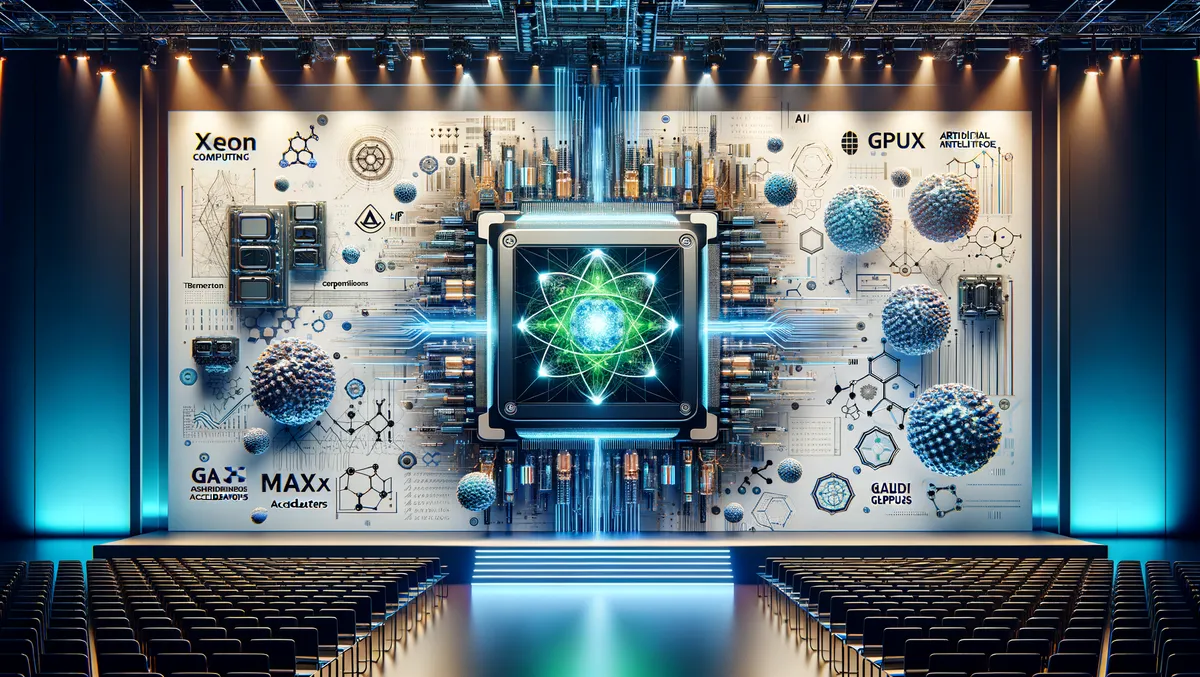Intel unveiled exciting advances in high-performance computing (HPC) and artificial intelligence (AI) technology for scientific innovation. The company outlined its continued commitment to delivering solutions targeted to the needs of the HPC and AI community, utilising a cocktail of their Xeon CPUs, Max GPUs, and Gaudi accelerators.
Deepak Patil, Intel's Corporate Vice President and General Manager of Data Centre AI Solutions, elaborated on this commitment: "The great performance of our Xeon CPUs along with our Max GPUs and CPUs help propel research and science. That coupled with our Gaudi accelerators demonstrate our full breadth of technology to provide our customers with compelling choices to suit their diverse workloads."
The company showcased its progress in AI-accelerated HPC using leading technologies including the Intel Data Center GPU Max Series, Intel Gaudi2 AI accelerators, and Intel Xeon processors. In conjunction with the Argonne National Laboratory, Intel unveiled the Aurora genAI project; a behemoth operating with a 1 trillion parameter GPT-3 LLM. The groundwork for this project is laid by utilising the unique architecture of the Max Series GPU and the eminently capable Aurora supercomputer system.
The collaboration with Argonne National Laboratory extends to the acceleration of scientific applications, with the Aurora Early Science Program and the Exascale Computing Project both benefiting from this partnership. The Aurora supercomputer projects undertaken are set to transform a plethora of scientific domains, including biology, climate science, cancer research, cosmic studies, and materials science.
Intel's spirited innovation is no more evident than in the functionality of the remarkable Aurora supercomputer, which can efficiently process 1 trillion-parameter models using just 64 nodes, rather than relying on the usual thousands. Argonne National Laboratory successfully ran four instances on 256 nodes, illustrating the growing capacity to produce multiple instances concurrently on Aurora. This opens the possibility to accelerate the training of trillions of parameter models more swiftly and on a much larger scale.
Intel and Argonne National Laboratory have demonstrated the impressive ability of the Aurora Supercomputer to handle a range of workloads. These practical demonstrations include the reconstruction of brain connectome at scale with Connectomics ML, the successful modelling of complicated chemical processes in drug and catalyst design with GAMESS, and visualisation and understanding of the universe's physics and evolution via the HACC. Furthermore, the drug discovery ESP offers efficient screening of vast chemical datasets.
In addition to the aforementioned technological showcases, Intel also demonstrated the performance of its Data Centre GPU Max Series, along with software enhancements across multiple applications and hardware. One of the key highlights includes the Gaudi2, which displayed a significant 2x performance leap on the v3.1 training GPT-3 benchmark approved by MLCommons.
Looking forward, Intel revealed that it's planning to introduce the Gaudi3 AI accelerators in 2024, promising enhanced performance and efficiency. The company also announced features for its 2024 software development tools, including faster performance and deployments using standard Python for numeric workloads.



